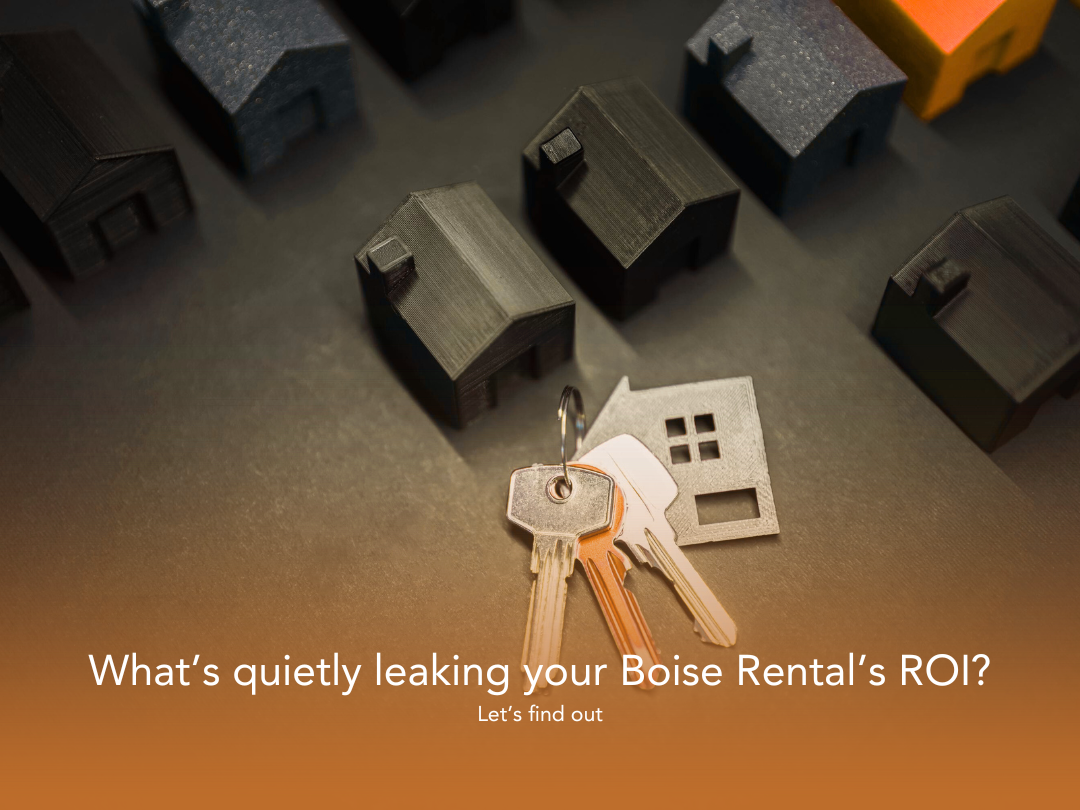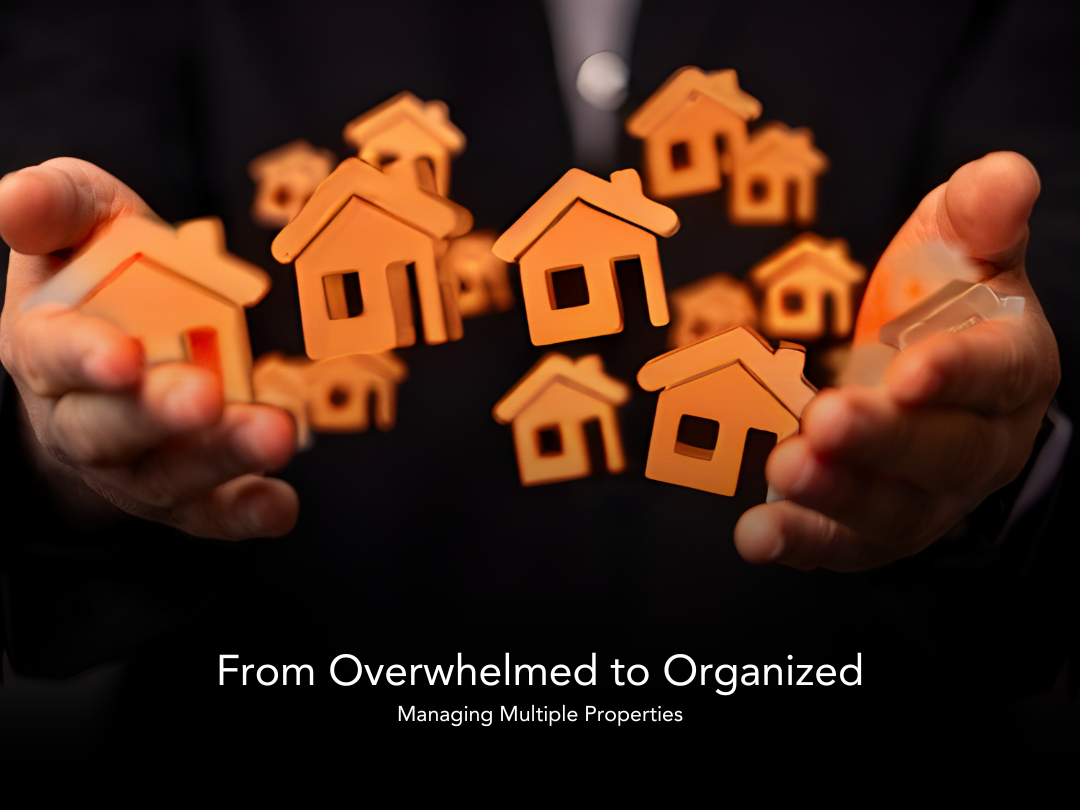Maintaining rental properties is a crucial responsibility for landlords and property managers. Regular maintenance ensures the property's longevity, enhances tenant satisfaction, and reduces costly repairs in the long run. However, property maintenance can be a significant expense if not managed efficiently. In this blog post, we will explore cost-effective property maintenance solutions to help you save time and money on repairs. From preventive maintenance strategies to budget-friendly tips, we'll provide actionable insights to optimize your property maintenance practices.
Conduct Regular Inspections
Regular inspections are essential to identify maintenance issues early on and prevent them from escalating into more significant problems.
Schedule routine inspections to assess the condition of various property components, such as the roof, plumbing, electrical systems, HVAC, and structural integrity.
Address minor maintenance issues promptly before they turn into expensive repairs.
Implement Preventive Maintenance
Preventive maintenance involves proactively addressing maintenance tasks to prevent potential problems and extend the lifespan of property components.
Create maintenance, including HVAC filter replacements, gutter cleaning, landscaping, and pest control.
Inspect and service appliances, such as refrigerators, stoves, and washers/dryers, to prevent breakdowns and costly replacements.
Prioritize Tenant Education
Educating tenants about proper property care can help prevent maintenance issues caused by negligence or misuse.
Provide tenants with comprehensive move-outlining theories for property maintenance responsibilities and care.
Regularly communicate maintenance expectations and offer tips for minor maintenance tasks, such as changing light bulbs or unclogging drains.
Establish Relationships with Reliable Contractors
Building relationships with trustworthy and reliable contractors can help you secure quality services at reasonable prices.
Research and vet contractors before hiring them for maintenance and repair work.
Establish a network of plumbers, electricians, HVAC technicians, and other professionals who offer competitive rates and reliable services.
DIY and Self-Maintenance
Certain maintenance tasks can be handled by landlords or property managers themselves, saving costs on labor.
Learn basic repair and maintenance skills to handle minor tasks like painting, caulking, replacing hardware, and fixing minor plumbing issues.
Invest in a toolkit with essential equipment to tackle everyday maintenance tasks.
Use Technology and Software
Embrace technology to streamline property maintenance processes and reduce administrative burdens.
Utilize property management software with maintenance tracking features, allowing you to schedule, assign, and track maintenance requests.
Explore innovative home technology options that can help monitor property systems, detect issues early on, and automate routine tasks.
Budget Planning and Expense Tracking
Develop a comprehensive budget for property maintenance expenses to ensure proper allocation of funds.
Track and review maintenance expenses regularly to identify trends, prioritize spending, and make adjustments as necessary.
Consider setting up a separate maintenance fund to cover unexpected repairs or major renovations.
Energy-Efficient Upgrades
Investing in energy-efficient upgrades can save you money on utility bills while reducing the environmental impact.
Replace traditional light bulbs with LED bulbs, install programmable thermostats, and consider energy-efficient appliances to lower energy consumption.
Improve insulation and seal gaps to enhance energy efficiency and reduce heating and cooling costs.
Regular Cleaning and Proper Care
Encourage tenants to maintain cleanliness and proper property care, reducing the risk of damage and the need for frequent repairs.
Provide guidelines for cleaning and maintenance tasks, including regular cleaning schedules and tips for handling spills or stains.
Conduct move-out inspections to ensure tenants leave the property in good condition, holding task descriptions responsible for any damages beyond normal wear and tear.
Continual Learning and Improvement
Stay informed about industry best practices, emerging trends, and new technologies related to property maintenance.
Attend seminars, workshops, or webinars focusing on cost-effective maintenance strategies.
Network with other landlords or property managers to exchange ideas and learn from their experiences.
Create a Maintenance Log
Keep a detailed maintenance log to track all maintenance activities, including repairs, replacements, and inspections.
Note the date, description of the task, the person responsible, and any associated costs.
This log will serve as a reference for future maintenance needs, help identify recurring issues, and provide documentation for insurance or legal purposes.
Engage in Preventive Pest Control
Proactively address pest control by implementing preventive measures to minimize infestations.
Seal entry points, maintain cleanliness, and consider professional pest control services for regular inspections and treatments.
Addressing pest issues promptly prevents property damage and ensures the comfort and satisfaction of tenants.
Regularly Update Property Documentation
Keep thorough and up-to-date property documentation, including floor plans, utility layouts, and appliance manuals.
This documentation assists in identifying maintenance needs, guiding repairs, and facilitating communication with contractors or service providers.
Prioritize Safety Measures
Safety should be a top priority for landlords and property managers.
Regularly inspect safety equipment such as smoke detectors, carbon monoxide detectors, fire extinguishers, and security systems.
Ensure that property features, such as handrails, staircases, and walkways, are in good condition and meet safety standards.
Encourage Tenant Feedback
Foster open communication with tenants and encourage them to provide feedback on maintenance needs.
Establish multiple channels for reporting maintenance issues, such as a dedicated email, online portal, or phone line.
Actively listen to tenant concerns and address them promptly to maintain tenant satisfaction and prevent minor issues from escalating.
Document Before-and-After Photos
Take before-and-after photos when conducting repairs or renovations.
These visual records serve as evidence of the property's condition, help assess the effectiveness of maintenance efforts, and assist in insurance claims or disputes.
Stay Updated on Local Codes and Regulations
Familiarize yourself with local building codes, health and safety regulations, and landlord-tenant laws.
Adhere to these regulations to avoid legal issues, penalties, or fines associated with non-compliance.
Plan for Seasonal Maintenance
Develop a seasonal maintenance plan to address specific yearly property needs.
Consider tasks like gutter cleaning in the fall, HVAC system servicing before summer and winter, and landscaping preparations for each season.
Encourage Tenant Responsibility
Communicate tenant responsibilities regarding maintenance, such as reporting issues promptly and following proper care instructions.
Provide educational materials or guidelines that outline tenant responsibilities and encourage proactive property care.
Continual Evaluation and Improvement
Regularly evaluate the effectiveness of your property maintenance practices and make adjustments as necessary.
Analyze maintenance costs, tenant feedback, and overall property condition to identify areas for improvement and cost-saving opportunities.
By incorporating these additional tips into your property maintenance strategy, you can optimize efficiency, reduce costs, and ensure long-term value and satisfaction.
Conclusion
Maintaining rental properties doesn't have to be a costly and time-consuming endeavor. By implementing cost-effective property maintenance solutions, landlords and property managers can save time, money, and resources while upholding the quality and value of their properties. From conducting regular inspections to engaging in preventive maintenance, prioritizing tenant communication, and utilizing technology, these strategies can streamline maintenance processes and contribute to tenant satisfaction. Remember, effective property maintenance is an ongoing effort that requires attention to detail, continual learning, and a proactive approach.
Disclaimer: The information provided in this blog post is for general informational purposes only and does not constitute professional advice. Consult with a qualified professional for specific property maintenance and repairs guidance.










